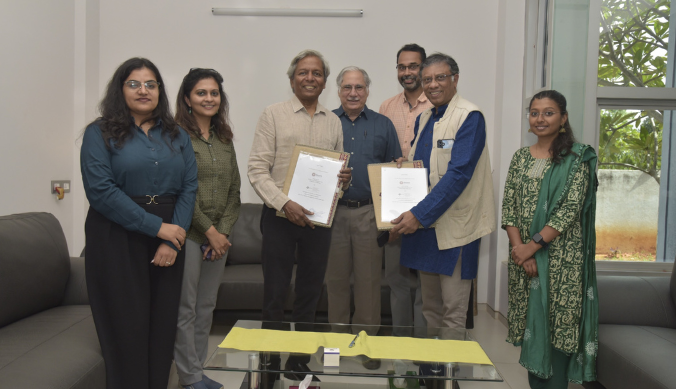Beyond Calories: The Impact of Macronutrient Composition on Life History and Ageing
Sudipta Tung, DBT/Wellcome Trust India Alliance Early Career Fellow at the Department of Biology, discusses his research, which reveals how diet influences organismal health and longevity, emphasising the critical role of nutritional balance

Sudipta Tung
15 March, 2024 | 3m readFood is more than just fuel for our bodies; it is essential for our health and well-being. The various macronutrients present in our diets, including proteins, carbohydrates, and fats, play important roles in maintaining our health and can even influence the ageing process. Sometimes, though, what we eat might not match with what our bodies really need, which can cause problems. Our research looks into how organisms cope with these mismatches, blending the study of nutrition with understanding disease to see how diet impacts our lives in big ways.
Our study explored how different proportions of protein and carbohydrates in diets with consistent calorie content affect various aspects of organismal health and performance. We aimed to discern how these dietary imbalances impact various aspects of life, such as how quickly organisms develop, their chances of survival as juveniles, their ability to reproduce successfully, how long they live, as well as their functional abilities such as locomotion and gut health in later stages of life. This research is important because it helps us understand how diet changes, particularly protein and carbohydrate imbalances, affect overall health and performance. This understanding is important in the context of two global challenges. First, changes in the environment due to factors like climate change are affecting the quality of food (in terms of nutrition content) available to animals, leading to rapid ecological shifts. Second, people are eating in ways that our bodies may not be well adapted to, leading to health problems like obesity and related cardiometabolic disorders, including diabetes.
In our approach, we formulated diets with varying amounts of protein-to-carbohydrate ratios and monitored a large group of Drosophila melanogaster commonly known as fruit flies. We assessed the performance of these flies under the experimental diets through a wide range of demographic, physiological and health indicators. The different factors that we investigated are developmental time, juvenile mortality, sex ratio, body size, how many offspring they had (reproductive output), locomotor activity, and the health of their digestive system (gut health). Additionally, we studied how these diets affected the activity of genes (diet-induced changes in gene expression) by analysing their RNA.
Our results demonstrate that low-protein diets, even with the same caloric content, delayed the development and reduced the number of offspring produced without significantly impacting juvenile mortality or body size. On the other hand, diets high in carbohydrates shorten their lifespan, leading to early decline in function, reduced movement, and digestive problems. When we compared the gene activity in flies on high-protein diets to those on high-carb ones, we found interesting differences, particularly in the way they handle fat. This finding is intriguing as it points to the flexibility of genetic responses to dietary changes, opening up new avenues for research into how diet influences health and ageing.
In essence, our study illuminates the complex relationship between diet and life processes, offering valuable insights into how organisms might adapt to changing dietary landscapes. This knowledge is not just academically intriguing but has profound implications for wildlife conservation and public health. It informs conservation strategies in changing environments and underscores the need for a deeper examination of modern diets’ role in public health, particularly the rising tide of metabolic diseases. By linking dietary composition to health outcomes, our research emphasises the critical importance of nutritional balance, laying the groundwork for strategies to mitigate the adverse effects of dietary mismatches and promote healthier lives and ecosystems.
Reference Article
Diet‐induced plasticity of life‐history traits and gene expression in outbred Drosophila melanogaster population. Ecology and Evolution, 14(2), p.e10976. https://doi.org/10.1002/ece3.10976. Authors: Mudunuri, A., Chandrakanth, M., Khan, S., Sura, C., Kumar, N. and Tung, S.
(Edited by Dr Yukti Arora, Senior Manager, Academic Communications, Research and Development Office, Ashoka University)
Study at Ashoka












